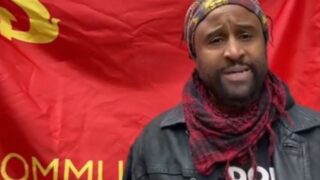New Life Evangelical Center loses cases where it challenged the prohibition to distribute the popular baloney sandwich to the homeless without a food permit.
by Massimo Introvigne


Feeding the poor is part of religious liberty, but not if you feed them bologna sandwiches, also known as baloney sandwiches, without a food permit. This is the conclusion reached on July 22, 2021, by the U.S. District Court for the Eastern District of Missouri, which found against New Life Evangelical Center, a Christian charity.
New Life volunteers feed the St. Louis homeless several days per week, in addition to distributing clothing, gloves, and blankets, and religious material. They decided to include bologna sandwiches because they “are more filling and provide the recipient a balance of fats, carbohydrates, and protein which, otherwise, the
hungry persons might not have available to them.”
To sell or distribute for free in St. Louis non-prepackaged “salads or sandwiches containing meat, egg, poultry, or fish,” including bologna sandwiches, you need a temporary food permit, which, the city claims, protects the health and hygiene of the citizens.
New Life volunteers did not have such a permit, and were stopped in their bologna sandwich distributions by the police and threatened with arrest. New Life sued the city, claiming that distributing adequate food to the homeless is part of what they perceive as their religious mandate, and the city is interfering with their freedom of religion.
Interestingly, the Court relied on the historical Smith case without mentioning the recent Fulton Supreme Court decision that, while stopping short at overruling Smith, found in favor of Catholic nuns operating a foster care agency that was denied a contract with the City of Philadelphia, because of its religiously motivated refusal to serve same-sex couples. The Fulton decision was quoted by the Supreme Court in a recent case about hygiene, where a group of Amish families was allowed to refuse the installation of modern septic tanks that they claim are prohibited by their theology.
In the New Life case, the judges applied the Smith principle that general provisions that incidentally and unwillingly create a burden to religious activities do not violate religious liberty and remain enforceable. New Life argued that “the Ordinance’s various requirements to obtain a permit impermissibly restrict Plaintiffs’ ability to fulfill their religious obligation to share food with hungry persons, and that they cannot reasonably comply with the City’s permitting and regulatory requirements. For example, they share food three to five days per week, and to obtain a permit to continue this practice would cost roughly $7,500 per year.”
In fact, precisely because of the New Life case, this cost was lowered by the city, which introduced reduced fees for charities distributing food to the poor, a circumstance the court considered.
The judges also concluded that “there is nothing about bologna sandwiches specifically that inherently expresses their [New Life’s] religion,” and that New Life can continue to carry out its mission to the homeless by distributing other kinds of food for which a permit is not required.
Whether the homeless may prefer bologna sandwiches to, say, vegetarian pizza was not really considered.









